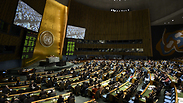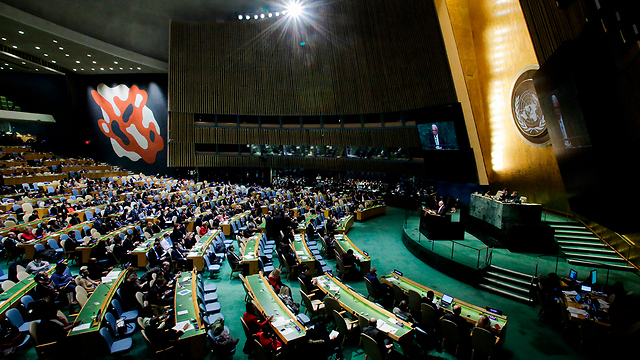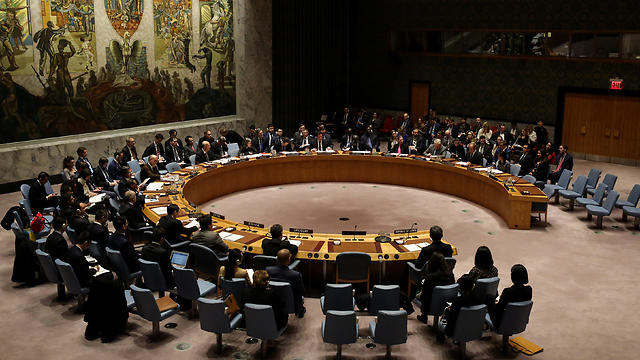
What happens at the UN GA stays at the UN GA
Op-ed: Netanyahu and Trump apparently fail to understand that the United Nations General Assembly is all about pretend diplomacy; as long as the General Assembly focuses on words against Israel, the Security Council will likely avoid taking real action against Israel.
A moment after the General Assembly members voted in favor of Resolution 3379, which determined that “Zionism is racism,” that ambassador, Daniel Patrick Moynihan, approached his Israeli colleague, Chaim Herzog, gave him a warm hug and expressed his frustration with the UN—which is likely shared by many people today—by saying: “F**k ‘em.”

As our prime minister, senior ministers and ambassador at the UN issue fiery statements against the General Assembly’s recent condemnation resolution, they should perhaps tone down their comments and consider adopting Moynihan’s approach, or at least a refined version of that approach. A slightly deeper consideration of the organization’s internal tensions, and the complicated manner in which it operates, indicates that symbolic votes of this kind not only fail to threaten Israel, but they may actually help Israel indirectly.
Prime Minister Benjamin Netanyahu, who doesn’t miss an opportunity to use the UN stage to put on his theatrical shows, has failed to understand that that’s the General Assembly’s exact purpose: Acting. Engaging in pretend diplomacy.
Anyone who has read the UN Charter and has been following the organization knows that like in Las Vegas, what happens at the UN General Assembly stays at the UN General Assembly. Chapter IV of the UN Charter specifies the General Assembly’s functions and powers: To make recommendations, to talk, to discuss, to initiate studies and to consider. The main thing the General Assembly is explicitly unauthorized to do is to act. This power is reserved to the Security Council, and that’s the only place where Israel could really suffer.
Despite the democratic slogans the UN likes to wrap itself in, it’s really an anti-democratic body where the basic principle of one vote per member isn’t actually valid in light of the veto right granted to the permanent members—the US, China, Russia, Britain and France—at the Security Council. They are the only ones with the authority to activate or prevent the charter’s operative articles—41 and 42—which permit the use of sanctions and military measures.
That’s no coincidence. When the Americans founded the organization at the end of World War II, they realized that if they wanted to secure their hegemony, they had to create a semblance of comradeship and equality and give each member a false representation of power. And that’s exactly what the General Assembly does: It allows countries with no real influence in international terms—military, political or economic—to feel as if they have some kind of influence.
It’s unclear whether Netanyahu or US President Donald Trump understand this link between the Security Council and the General Assembly—between where policy is made and where the main thing that is made is noise.
But thanks to the possibility to let off diplomatic steam in the form of anti-Israel resolutions at the General Assembly, the Arab states, Turkey and Iran are essentially settling for symbolic victories—especially for internal needs—which reduce the pressure to act against Israel at the Security Council.
So instead of deciding to stop playing by the rules and looking for ways to punish states that voted against us, we should remember that as long as the General Assembly focuses on words against Israel, the Security Council will likely avoid taking action against Israel.
Dr. Yoav Fromer teaches politics and history at Tel Aviv University.











